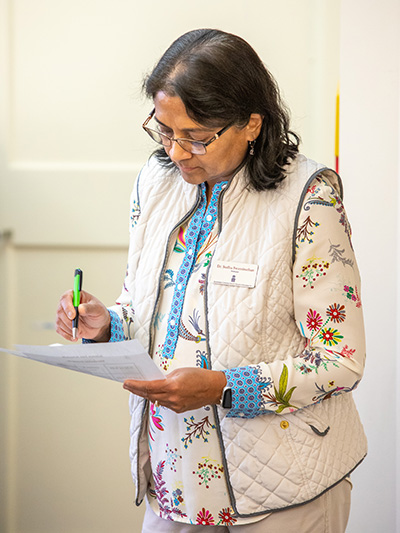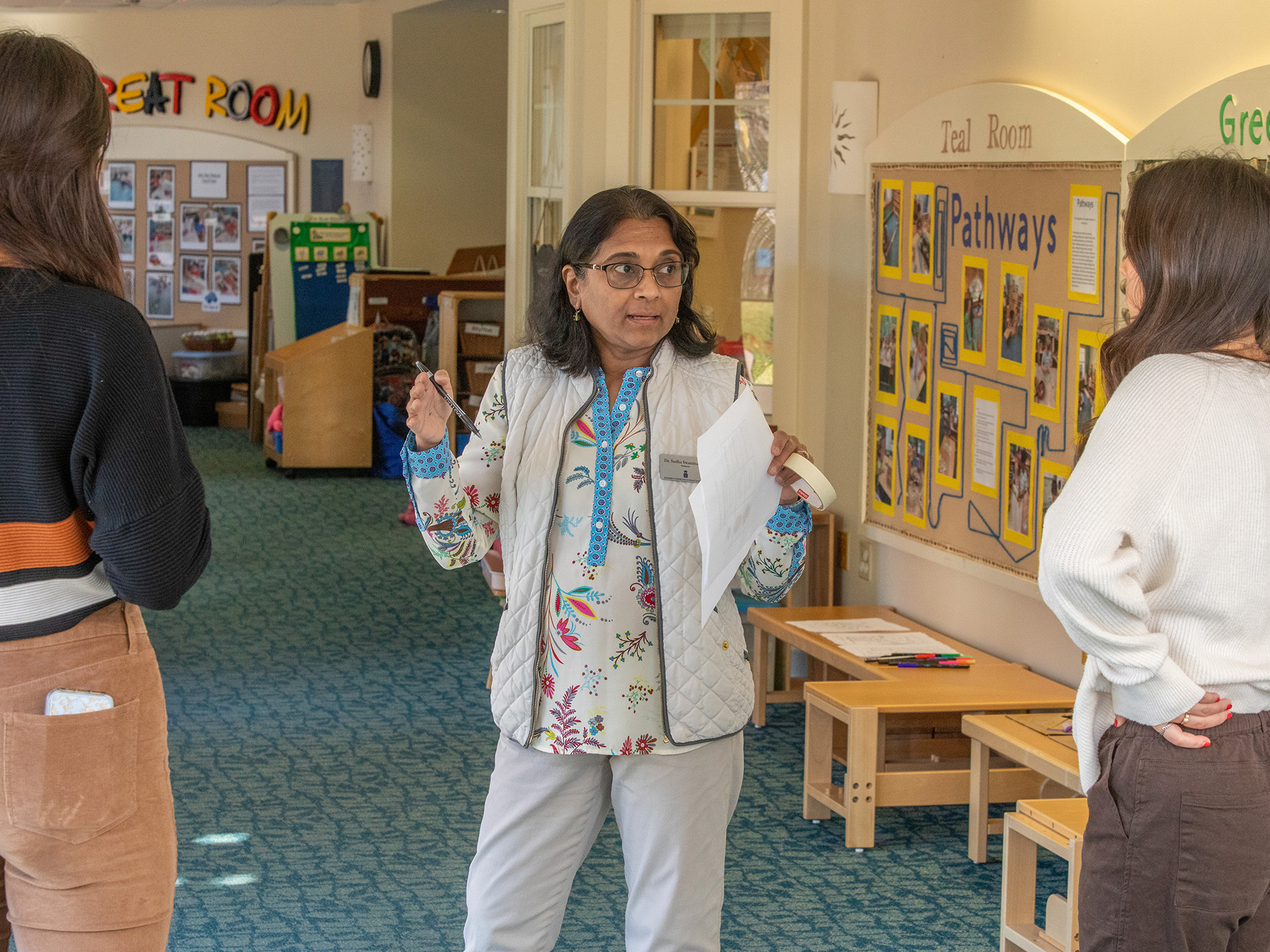- Apply
- Visit
- Request Info
- Give




 How did you come to Eastern?
How did you come to Eastern?“I was teaching at the University of Nevada, Las Vegas when I decided to return home to the East Coast in 1996. I started looking for jobs and the only place that had a mathematics position in Early Childhood Education was Eastern. I knew nothing about the University and started doing some research. The names of Jeffrey Trawick-Smith and June Wright popped up — both nationally recognized authors and scholars in the field of early childhood education. Attracted by their scholarship, I applied to Eastern and accepted the position.”
“I have always enjoyed teaching Eastern students how to teach mathematics to young children. Recently, I have begun teaching a course called Action Research. I help in-service teachers design and implement an action research project in their classroom. This is a culminating project for students who are in a variety of Eastern’s master’s programs. Their research ranges from biology to special education. Topics are wide and far-reaching, every student’s assignment is different, and the research must be completed in four months. It is a challenging course to teach someone to complete their research in four months and it is easily my favorite now.”
“My research has always centered on early childhood mathematics. Within that area, I have also looked at teacher-child interactions, how technology is used in early childhood mathematics, and also children’s play behaviors while learning math. During my recent sabbatical, I looked at coding with tangible robotics and their impact on math. Now I am looking at bilingual children and researching how bilingualism supports their learning of mathematics.”
“In our small classes, I get to know my students very closely — their learning styles, their challenges, so I can make accommodations. I can tailor my instructional plans to fit the class’s dynamics.”
Seeing my students comfortable and confident in talking about their research, showcasing their capacity for reasoning and critical thinking, never fails to inspire and impress me. Those are the best moments.

“My teaching philosophy is inquiry-based. I like students to explore and interact with the materials. I also assign readings and expect students to arrive at class having reflected on those readings. My courses typically tend to be top-heavy, meaning students acquire knowledge of content and practices early in the class and apply and implement their learning in projects in the latter part of the class.”
“My most memorable moments have been Interacting with students on research. I especially enjoy accompanying my students to conferences to present their research, where they get to see how much they have learned and how to apply their learning beyond the classroom. Seeing my students comfortable and confident in talking about their research, showcasing their capacity for reasoning and critical thinking, never fails to inspire and impress me. Those are the best moments.”
“Most of my students are clear in their desire to be teachers. Some go on to become researchers, directors of centers, education interventionists, some of them go on to be college professors — careers all within the spectrum of education, but not necessarily as classroom teachers. I tell my students to stay flexible because the education they are getting at Eastern prepares them to be teachers for sure, but it also gives them the skills to do a number of other things that they may not realize they have the capacity or interest to accomplish.”
“Stay in touch with Eastern faculty and other alumni. As professors, we are always reaching out to our alumni to be mentor teachers to our students, to come back and teach courses for Eastern, or to conduct research. The more you stay connected, the more Eastern can grow, and it’s a professional opportunity for our graduates as well.”